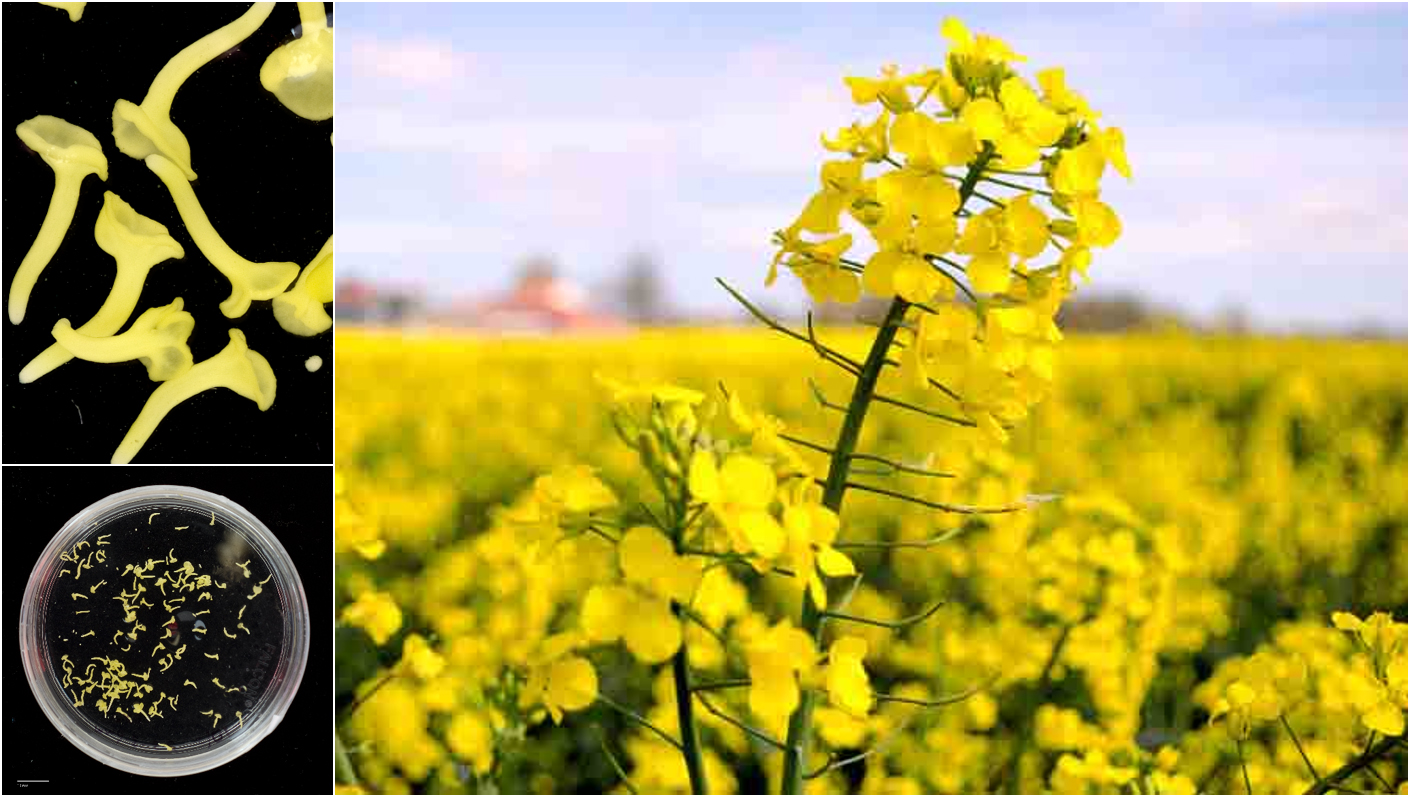
A study recently published in the journal Plant and Cell Physiology and led by the group of Dr. Pilar S. Testillano at the Margarita Salas Center for Biological Research, identifies new molecular targets with biotechnological potential for the search for improved agricultural varieties. The study, carried out in collaboration with the BioCenter of Upsalla (Sweden), shows that the inhibition of metacaspases and autophagy in vitro reduces cell death and increases the regeneration of plants, key factors in plant breeding strategies to obtain more productive and safe crops, which are additionally better adapted to environmental changes.
Today's agriculture faces significant pressure around the world to efficiently and rapidly improve crops, developing varieties that guarantee food security and environmental sustainability in a scenario of climate change, scarcity of natural resources and a world population in increase. Classical genetic breeding requires many generations and numerous selection processes to produce new varieties. Stress-induced embryogenesis of microspores is a biotechnological process that makes it possible to rapidly obtain double-haploid plants. These constitute key elements in breeding programs since they provide new genetic variability (new characteristics) totally fixed (in homozygosis) in a single generation.
Berenguer et al. demonstrate in microspore embryogenesis cultures of rapeseed (Brassica napus) the participation of proteases of the metacaspase family (MCAs), together with autophagy (cellular degradation process), in the cell death of the cultures. The chemical inhibition of the proteolytic activity of metacaspases and autophagy, allows reducing the levels of cell death and increasing the efficiency of embryogenic induction, which additionally increases the production of embryos and double-haploid plants. In the work, elements of the B. napus metacaspase family are identified for the first time and their induction and role in cell death during microspore embryogenesis is demonstrated.
The work opens a new path of intervention using MCAs and autophagy as new molecular targets in biotechnological applications for a more efficient and rapid search for new agricultural varieties, more productive and better adapted to environmental changes.
Reference: Suppression of metacaspase and autophagy-dependent cell death improves stress-induced microspore embryogenesis in Brassica napus. Eduardo Berenguer, Elena A Minina, Elena Carneros, Ivett Bárány, Peter V Bozhkov, Pilar S Testillano (2020) Plant and Cell Physiology, Published as Advance Article Ahead 15-October-2020. DOI: 10.1093/pcp/pcaa128.

